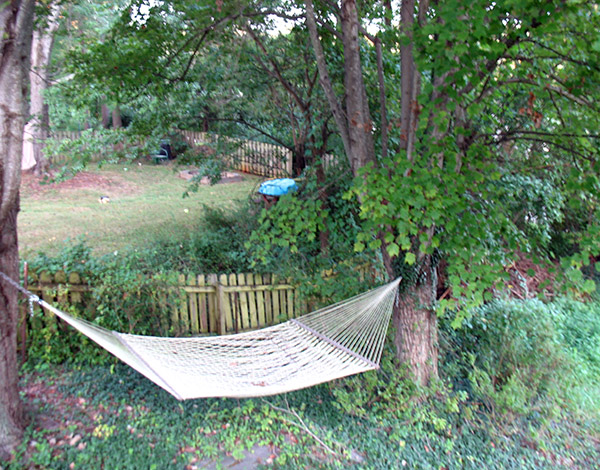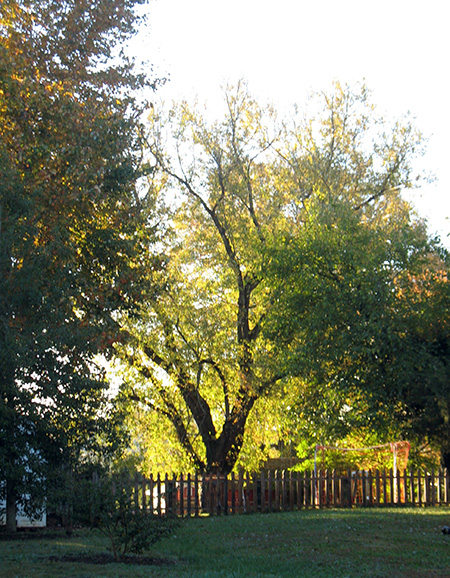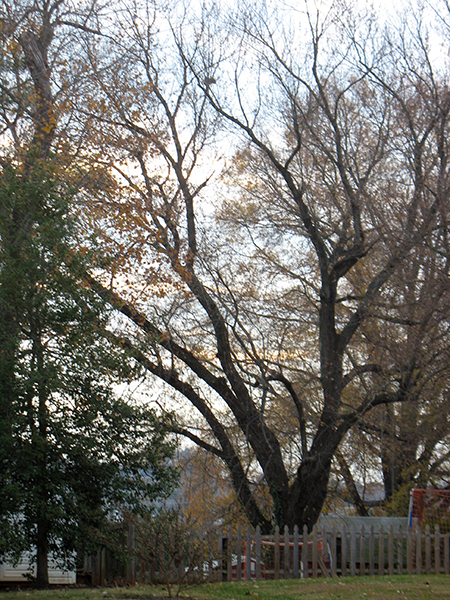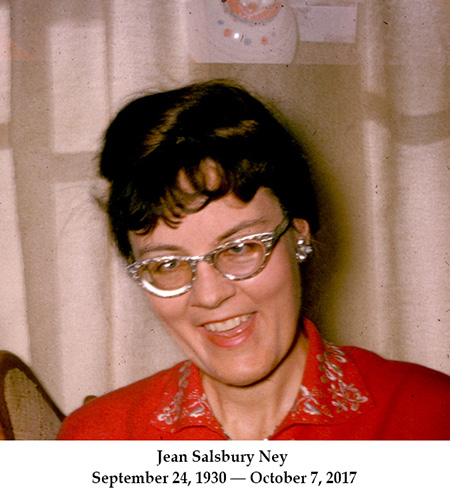I first heard the middle school mantra for success in either the spring or summer of 2014. My twins were headed for 7th grade in the fall, and we were attending an orientation at Buford Middle School.
Be in the right place,
at the right time,
with the right tools
and the right attitude,
doing the right thing.
I’ll admit I wrote it off as simplistic and a blatant control move by authority. Admittedly, getting 500 students and 50 teachers and staff all pointed in roughly the right direction must be challenging. The administrative staff has their work cut out for them, and every bit of leverage helps.
But I didn’t pay much attention to the Buford mantra until today, more than 2 years after I heard it, and with my children now in 9th grade and attending high school.
So why did I think about it this morning? And why did I suddenly realize it possessed some useful ideas?
Confession time.
I love writing, but you already knew that. I love world building. I love making up characters. I love getting to know those characters and following them through their adventures. I love the hard work that a novel requires and the feeling of satisfaction that comes when I complete one.
But I have one guilty secret about writing that hides in the thicket of all of the above.
I like the way writing tends to automatically organize and prioritize my day. Because here’s the thing: when I’m not writing, I often have an uncomfortable, nagging feeling that I’m not doing the right thing, whatever the right thing might be. And I don’t know what the right thing actually is.
Oh, sometimes I know what the right thing is. But often, I don’t. And I hate that feeling. Hate it!
I’ve always tackled quelling the feeling that I’ve chosen the wrong thing with a straight attack, using logic as my tool. What should I be doing right now? Sometimes that works.
Voice of Reason:“I should be emptying the clean dishwasher, filling it with dirty dishes, and running it again.”
JM:“Uh. Okay.”
:: goes and does the dishes chore ::

More often, that doesn’t work. At least, not for me.
Voice of Reason: “I should revise the cover copy for Livli’s Gift.
JM: “I’m brain dead right now. No can do.”
Voice of Reason: “Okay. How about KonMari-ing that cabinet in the bathroom?”
JM: “I could. And it does need to be done. But I’ve got a lot of more important things on my plate right now.”
Voice of Reason: “Okay. How about working on the new cover for Skies of Navarys?”
JM: “Fine. It doesn’t feel like the right thing, but it does need doing, I do have the mental wherewithal to do it, and it is important.”
:: goes to work on that cover, feeling all the while that something is not quite right ::

Since I sent my current novel off to my first reader on October 4, I’ve been having conversations much like that second one for the last twenty-six days, and very uncomfortable has it been.
I’ve done a little writing on a short story. But, really, the weeks when I’ve finished the first draft of one novel and haven’t yet started the next one are the ideal time for me to get caught up (or at least make progress on) other priorities in my life. Because I definitely get behind on them when I’m writing.
When I’m writing, the conversation goes like this:
JM: “What should I do today?”
Voice of Reason: “Write the next scene of the novel. Then go to the gym and swim. Then help your son with that big school project. And then you’ll be tired. So read, if you’re in the mood. Or do some drawing.”
JM: “Great!”
:: pulls out computer and starts writing ::

So the bathroom cabinet does not get organized via the KonMari technique. I don’t develop a new dinner menu to add to the roster. I don’t mend the tear in that sundress. I don’t write a new “blurb” for Livli’s Gift. The garden does not get weeded. And many other tasks go undone.
But I feel like I am doing the right thing. Writing and going to the gym always feel like right things. Which is a relief.
Last week I tried talking with a friend about my problem of feeling like I’m doing the wrong thing. I was not very articulate about my problem. And I ended up sounding like I was a workaholic. But I’m not really.
Just yesterday I found myself roped into helping my daughter figure out a costume for a Halloween party she was invited to. I ended up pulling out some dresses of mine that I’d saved for her: a pink-flowered prom dress that my grandmother originally sewed for my my mother, and that I wore to go swing dancing in the 1980s; a teal velvet gown that my mother sewed for me and that I wore at feasts for the Society for Creative Anachronism when I was in college; a yellow chiffon gown that my father and I sewed together when he realized that all our father-daughter projects had been “boy things” (model railroads, model rockets) and none of them “girl things.”
(My dad is cool! What can I say?!) 😀
My daughter and I had a blast as she tried on all those special garments. And I had no desire to be working or doing anything other than what I was doing that afternoon. It was perfect. And it felt right.
So has lying in the hammock on a beautiful summer morning felt right. Or re-reading a favorite novel by Georgette Heyer.

I have no problem enjoying non-work activities, and engage in them fairly frequently. That’s not my problem.
My problem is that I have difficulty consistently identifying what activity will feel right for any given interval of time. And, more often than not, I don’t succeed in identifying the right activity. So I do something else. And the nagging sense of “something wrong” drags at me, and dilutes any enjoyment I might feel.
I get things done. But I’m not getting as much done as I would if I weren’t continuously fighting the “something wrong” feeling. And I’m not enjoying living as much as I might be.
I’ve thought about this problem ever since I was old enough to make choices about how I spent my time and energy. I’ve journaled about it. I’ve tried to talk about it with friends and mentors, but I’ve never felt like I was able to communicate about it very adequately.
I’ve tried various organizational systems: Stephen Covey’s 7 Habits of Highly Effective People, simple to-do lists, and lately my bullet journal. I’m still loving my bullet journal, but organizational systems don’t really address an immediate feeling of meaning.
When I sent my current novel off to my first reader, I tried to plan a way that I could occupy myself meaningfully while I awaited her feedback. The best thing I could come up with was that I would start the short story I had in mind. I did start it, and I’m excited about it. But writing more doesn’t really solve the problem of choosing meaningful activities when I’m not writing.

So, this morning, while I got my morning sun on the front porch, I wrote about my difficulty in my journal. And while I wrote about it, that middle school mantra for success came to mind.
What if it did have something to offer me? What might I learn if I reconsidered it?
One thing I grew very aware of while I journaled was that I often don’t have the resources I need for the task I contemplate tackling. The most typical resources lacking are mental alertness and oomph or physical energy. But there are other resources missing at times: know-how and helpers are others that appear regularly.
What might I see if I took a prospective task through the mantra, instead of going straight to the knockout-punch question: Is this the right task?
The Right Place
For a lot of living, identifying the right place is very straight forward. If you are in school, are you in the right classroom? If you are working for an employer, are you in the right office or the right meeting room or the right site for a site visit?
If you have more control over your location, the answer to “am I in the right place?” can grow more complex.
If I’m cooking, clearly I need to be in the kitchen. If I’m doing laundry, I need to be in the corner of the basement that holds the washer, the dryer, and the drying racks.
But I have plenty of memories of doing something in the wrong place: trying to draw a plan for a work table while lying on my bed; using an x-acto blade to cut paper for a photo album while sitting on the bed; doing sit-ups in the narrow bit of floor between the bed and the bureau; spinning lettuce in the salad spinner on the dining room table, instead of the kitchen counter. I could go on.
I managed to accomplish all those activities in the less-than-ideal place. And half the time, there was a good reason for the non-standard location. But half the time, I just dove in where I was on whatever. And once I was well started, it seemed silly to stop while I relocated.
The question of the what the right place is may need only brief consideration, but skipping it altogether is unwise. For me, at least. And it’s not just because I might end up doing something inefficiently.
Skipping consideration of the right place means that I might miss the first clue that whatever I’m considering isn’t the right thing for me at this time.
For example, the times I’ve spun the lettuce in the salad spinner on the dining room table have been times when the kitchen counter is too full of dirty dishes. Sometimes, that location is the best one. If I’m in a hurry to throw together a salad and don’t have time to clear the kitchen counter and eat the the salad, then yes: table. If I’m too tired, and don’t have sufficient energy for both, then yes: table.
But I might also be better served to change my schedule and rest for 10 minutes. Or eat carrots and dip plus ham rolls, instead of salad, if I’m that rushed. Feeling the pull of a non-standard place or an inconvenient place is something to notice, not something to ignore.
The Right Time
Really structured environments tend to provided automatic answers to: “Is this the right time?” But my environment is highly unstructured. I must structure it. And this is an area where I go astray often.
It’s the morning, and I would feel good if I were writing. But instead I’m checking email.
It’s the morning, and I will be most comfortable if I eat breakfast before going on with my day. But I had a great idea for the next scene in my novel, and I wanted to get it written down before it eluded me. So I jumped on the computer and got lost in the writing, only emerging at 11:30 am, long after I needed breakfast.
It’s 12:30 pm, and the best window at the pool for swimming is from 12:45 pm to 2:00 pm, so I would be well-served to be getting ready to swim and then hopping in the car to drive to the gym. But I never did get breakfast, so now I’m starving and must eat before I do anything else.
It’s 3:30 pm and the kids will be arriving home from school in 45 minutes. I would do well to wrap up the scene I’m writing and rest a little before they get here. But I was late to the gym and didn’t get home until 2:30 pm, so I’ve only done an hour of writing in the afternoon, and I don’t want to stop.
Now, I’m not always doing the right thing at the wrong time, but often I am.
For me, the solution is not get rigid with my schedule. For one thing, it doesn’t work. I feel rebellious and rebel, with the result that my schedule is more disorganized, not less. Or else it does work, and I’m being marvelously efficient, but I’m not generating that good feeling of doing the right thing.
But I think that asking myself the question: “Is this the right time for this?” will heighten my awareness and improve my decision making, with the result that I feel good about my choice of activity, whatever it is.
The Right Resources
Okay, this one is huge for me. At least, I think it is.
Being able to do something without the right resources is a useful skill. It’s not always possible to gather those resources, and if the task is important… well, flexibility and ingenuity are your friends! 😀
But somethings just cannot be accomplished without the right resources. Or can only be accomplished so poorly, that it would be better to shift the activity from doing the thing to seeking the resources that will make it possible.
Currently, I see five categories of resources worth considering.
• tools
• know-how
• energy
• interval of time available
• helpers
I could discuss each of those categories and why they are important. But as I’ve been typing this blog post, I am seeing more clearly what first came to light when I was journaling this morning. These questions I’ve borrowed from the middle school mantra could be used for basic organization. But – for me – their utility is in raising my awareness.
If I lack the size of screws needed to attach the bar of hooks to my son’s door, then should I really be tackling the hook project right now? Maybe I would feel better if I shopped for the screws, scheduled the actual project for a different day, and then went on to get my swimming in.
If I am feeling lonely, but can’t watch a movie with my spouse that evening, because he must attend a soccer orientation with our daughter, then I lack a helper. So maybe I should call a friend and talk on the phone instead. Or maybe I should go with spouse and daughter, even though I neither play nor coach soccer! 😀
If I lack a resource, I would do well to consider either acquiring it or doing a different activity that does not require that missing resource.
The Right Attitude
Do I really want to do whatever it is that I am considering? Can I commit to it? And if I cannot, why can I not?
I suspect that if I ask myself these questions in order – Is this the right place? Is this the right time? Do I have the necessary resources for this? – I will reach clarity before I arrive at the question: “Do I have the right attitude?”
But if I answered, “Yes, yes, and yes,” to the first three questions and then find I do not have the right attitude, the attitude question will halt me before I head off in the wrong direction.
Maybe I don’t actually have the resources I need. In which case… back up and reconsider.
Or maybe there is something else that is a higher priority than what I am considering, and I know it in my heart of hearts, but have refused to consider that more important something. “Do I have the right attitude?” will alert me when I’m considering the wrong activity for me.
The Right Thing
Is this activity the right one? That’s the question that I very much want to be able to answer. And my hope is that by asking myself about the right place, the right time, the right resources, and the right attitude I will tease out what really is the right thing for me at a given moment.

Will it work?
Why am I even telling you about all this before I’ve truly tried it?
I think it is worth trying. I used it a little bit today, and I’m pleased with how the day went. My bio-rhythms are a little off. I read a really good book several days ago, and it was so good that I stayed up until 3:00 am to finish it. So I allowed myself to sleep in the following morning. Which meant is was hard to go to sleep the next night. I’m getting back to the sleep-wake times that work best for me, but I’m not there quite yet.
So I got up at later today than usual. I went outside for my half hour of morning sun and wrote in my journal about wanting to be able to choose the “right thing” more reliably and about the middle school mantra for success.
And when I’d done that, I asked myself: “Is this the right time for more journaling?” And it wasn’t. It really wasn’t. But the greater awareness produced by the question made me very willing to move on to the thing that was right: cooking a late breakfast for everyone.
It felt good. It felt right. And that right feeling is what I am seeking.
Thoroughly tidying up the kitchen after eating breakfast felt right also, so I did that. And then I thought about what would feel right next. I became aware that if I wanted to swim, I’d best do it soon. I’d lose the opportunity if I waited.
 But the pause for mindful consideration using the mantra bought me something I might not have realized otherwise. Instead of just diving into swimming (my apologies for the bad pun) – or insisting that my son and I start work on his project right now – I would feel better if I consulted my son.
But the pause for mindful consideration using the mantra bought me something I might not have realized otherwise. Instead of just diving into swimming (my apologies for the bad pun) – or insisting that my son and I start work on his project right now – I would feel better if I consulted my son.
“I want to swim, and I want to help you with your project. I’d prefer to rest for thirty minutes ” – the kitchen work had tired me – “then swim, and then help you with your project. But will that work for you?”
He liked that schedule, so that’s what we did. And it felt good to me. It felt right.
So the mantra-generated questions worked well today. Much better than simply asking myself, “Is this the right task for right now?” Whether the mantra will work well over weeks and months remains to be seen. But I’ve learned that the time for telling others about something new that I’m trying is when it is new. I’m excited about it. I want to tell others.
If I wait until after I’ve thoroughly road-tested it, the communication becomes a chore. I still want to share, but I don’t have as much energy for it. Best to share while it’s fresh. I can always write another blog post later to report on how it’s working over time. And add an ETA (edited to add) to this post, along with a link to subsequent posts, to communicate the additional info.
Is this the right place?
Is this the right time?
Do I have the right resources?
Do I have the right attitude?
Is this the right thing?
I suspect not many people are so troubled by the sense of “doing the right thing at the wrong time” or “doing the wrong thing at the right time” as I am. I wouldn’t have gotten so many blank looks over the years when I tried to talk about this, if that were the case. But if you happen to be someone who has wrestled with this, I’d love to hear your experiences. What has worked for you? What hasn’t? And, if you give this middle school mantra a try… how do you feel?
ETA 11/10/2016
I’ve been working with all of the above for roughly ten days, and I’v discovered something really interesting to me. The very first question – without any of the follow-ups – is often sufficiently illuminating all on its own.
I’ll ask myself, “Am I in the right place?”
And then I’ll just know that I’m not. And I’ll know where I need to be and why.
A typical example:
I continue to love sitting outside in the morning for half an hour. It’s beautiful, and I just feel good. So good that I tend to linger a little too long. It’s okay to linger an extra ten minutes. Heck, sometimes even a full extra half hour is okay. But much more than that isn’t.
What I find is that I start getting an uneasy feeling after I’ve lingered for a bit. And when I use that feeling to prompt myself with the first question – “Am I in the right place?” – I raise my awareness sufficiently to know what would feel right for my next step.
I see now that when I planned my day in the past, I tended to think I’d done all the planning necessary. And when I went through that day, I could make the obvious adjustments (obvious to me), but I wasn’t making the less obvious adjustments. With the result that I would realize I’d gone wrong only after I’d been going wrong for quite some time. It’s a lot harder to fix that all-wrong feeling after it’s been building a head of steam.
“Am I in the right place?” helps me catch myself much sooner, with the result that I’m feeling a lot more satisfied with each day.
I’m going to keep working with this and see where it leads me. But I’m excited about the results thus far.


















